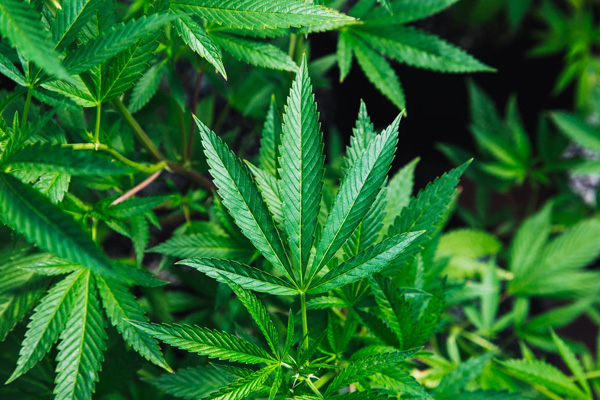Recent studies are documenting the benefits and risks of Cannabidiol (CBD)

[Photo Credit to Unsplash]
Recent scientific studies have cast both a promising and concerning light on Cannabidiol (CBD), a compound gaining popularity for its potential health benefits ranging from pain relief to mental health improvement.
While consumers have quickly adopted CBD for a broad spectrum of medical issues including anxiety, depression, and chronic pain, the depth and reliability of scientific evidence supporting these uses remains uncertain.
According to Psychology Today, CBD is now commonly used for conditions such as anxiety, stress, depression, sleep disturbances, gastrointestinal problems, and chronic pain.
The therapeutic potential of CBD spans a broad range of conditions, but the scientific validity of its efficacy is still in its nascent stages.
A key challenge in understanding CBD’s full benefits lies in ensuring the use of a pure form of the substance, as it can be derived either through synthetic means or complex plant extraction processes.
Forbes noted an uptick in CBD research, suggesting that its health benefits could be substantial.
One of the most acclaimed effects of CBD is its ability to reduce anxiety.
A 2018 study done by the Brazilian Journal of Psychiatry found significant anxiety reduction in participants who were administered 300 milligrams of CBD prior to a simulated public speaking test.
Interestingly, those who received lower or higher doses experienced increased anxiety, suggesting a potential bell-curve response where a middle dosage provides optimal effects.
Moreover, CBD's applications in treating epilepsy have received official endorsement.
In 2018, the Food and Drug Administration (FDA) approved Epidiolex, a CBD-based medication, for treating seizures associated with two rare and severe forms of epilepsy, Lennox-Gastaut syndrome and Dravet syndrome.
This approval was based on three robust clinical trials demonstrating that Epidiolex, when combined with other medications, significantly reduced the frequency of seizures compared to a placebo.
The compound also shows potential in treating post-traumatic stress disorder (PTSD).
A small study published in the Journal of Alternative and Complementary Medicine observed that PTSD patients who took CBD alongside routine psychiatric care experienced a decrease in symptoms over an eight-week period.
This suggests that CBD could serve as a supplementary treatment to traditional psychiatric methods for managing PTSD.
CBD’s potential extends to addressing the opioid crisis by helping to treat opioid addiction. Research indicates that CBD may reduce cravings and withdrawal anxiety in heroin users.
A notable study highlighted that over one week, CBD significantly lowered cue-induced cravings, withdrawal anxiety, resting heart rate, and salivary cortisol levels among heroin users, with no serious side effects reported.
Moving on, CBD may offer benefits for patients with Amyotrophic Lateral Sclerosis (ALS), a progressive neurodegenerative disease that affects nerve cells in the brain and the spinal cord.
Research suggests that the combination of THC and CBD can create an "entourage effect" that may help reduce symptoms like muscle stiffness in ALS patients.
Chronic pain management is another area where CBD is making strides.
Canada has approved the use of Sativex, an oral spray containing equal proportions of THC and CBD, for the treatment of multiple sclerosis-related pain and for cancer pain that is unresponsive to other medications.
More recent studies in the U.S. have demonstrated that topical application of CBD can significantly reduce intense pain and itchy sensations associated with peripheral neuropathy, a condition resulting from nerve damage in the brain and spinal cord.
While the potential health benefits of CBD are broad and promising, they are not without risks.
The Centers for Disease Control and Prevention (CDC) warns that CBD oil may cause liver damage and could interfere with other medications.
Additional side effects include drowsiness, diarrhea, changes in appetite, and mood changes.
Despite increasing applications and research, other studies caution against unwarranted optimism.
A recent paper in The Journal of Pain argued that there is a "distinct lack of evidence" that CBD products reduce chronic pain, suggesting that more rigorous and targeted research is necessary to substantiate the sweeping health claims made by CBD proponents.
As CBD continues to weave its way into the fabric of medical treatment options, both the scientific community and consumers await further research that will hopefully clarify the scope of its efficacy and safety.
The ongoing debate underscores the need for comprehensive studies to fully understand and harness the therapeutic potential of CBD while managing its risks effectively.

- Daniel Yejoon Ko / Grade 10
- Cheongshim International School

![THE HERALD STUDENT REPORTERS [US]](/assets/images/logo_student_us.png)
![THE HERALD STUDENT REPORTERS [Canada]](/assets/images/logo_student_ca.png)
